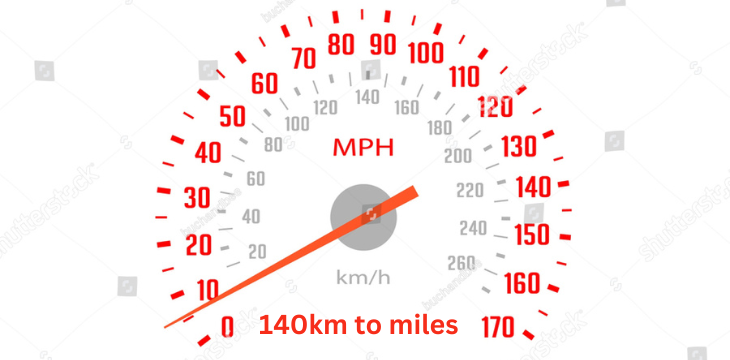Outline Of The Table
- Introduction 140km to miles
- Explanation of the conversion from kilometers to miles.
- Understanding the Conversion Factor
- Breakdown of the conversion factor between kilometers and miles.
- Converting 140 Kilometers to Miles
- Step-by-step process for converting 140 kilometers to miles.
- Why the Conversion Matters
- Importance of understanding distance in different units.
- Real-Life Examples
- Instances where converting kilometers to miles is practical.
- Comparison with Other Units
- Comparison of kilometers and miles with other common units of distance.
- Historical Context
- Brief overview of the origins of the kilometer and mile.
- Common Mistakes to Avoid
- Errors people often make when converting between kilometers and miles.
- Benefits of Knowing the Conversion
- Advantages of being able to convert between kilometers and miles accurately.
- Practical Applications
- Different scenarios where knowing the conversion is useful.
- Tools for Conversion
- Online tools and formulas for converting kilometers to miles.
- Conclusion
- Summarizing the importance and practicality of knowing the conversion.
Introduction 140km to miles
Understanding the conversion between different units of measurement is crucial for everyday tasks, especially when it comes to distances. One common conversion people often need is from kilometers to miles. In this article, we’ll delve into how to convert 140 kilometers to miles effectively.
Understanding the Conversion Factor
To convert 140km to miles, we need to understand the conversion factor. One kilometer is approximately equal to 0.621371 miles. This factor remains constant in all conversions between kilometers and miles.
Converting 140km to miles
To convert 140km to miles, we simply multiply the distance in kilometers by the conversion factor: 140 km×0.621371=86.99194 miles140 km×0.621371=86.99194 miles So, 140 kilometers is approximately 86.99 miles.
Why the Conversion Matters
Knowing how to convert 140km to miles is essential for international travel, navigation, and understanding distances on maps, road signs, and in various documents. It enables seamless communication of distances across different regions using different units.
Real-Life Examples
Imagine you’re planning a road trip in Europe where distances are typically measured in kilometers. If your GPS tells you that your destination is 140km to miles away, knowing how to convert this to miles gives you a better understanding of the distance you’ll be covering.
Comparison with Other Units
While kilometers and miles are commonly used for longer distances, there are other units like meters, feet, and yards. Understanding how these units relate to each other can provide a broader perspective on distances.
Historical Context 140km to miles
The kilometer originated from the French Revolution in the late 18th century, while the mile has its roots in ancient Roman measurements. Both have evolved over time and are now widely used in various parts of the world.
Common Mistakes to Avoid
One common mistake when converting kilometers to miles is using an incorrect conversion factor. It’s essential to remember the accurate value to ensure precise conversions.
Benefits of Knowing the Conversion
Being able to convert between kilometers and miles accurately can save time and prevent errors, especially in fields like logistics, transportation, and sports where distances play a significant role.
Practical Applications 140km to miles
From estimating travel times to calculating fuel consumption, knowing how to convert kilometers to miles has practical applications in everyday life and various professions.
Tools for Conversion 140km to miles
Several online converters and smartphone apps make it easy to convert between kilometers and miles instantly. Additionally, simple formulas can be used for manual conversions when needed.
Conclusion
Converting 140km to miles is a straightforward process once you understand the conversion factor. Knowing how to perform this conversion accurately is beneficial for various activities, from planning trips to understanding distances on a global scale.
Unique FAQs
- Why do some countries use kilometers while others use miles?
- Different countries adopted different units of measurement historically, leading to the use of kilometers in most of the world and miles in countries like the United States and the United Kingdom.
- Can I use an approximate conversion factor for quick calculations?
- While approximate conversion factors can give you a rough estimate, it’s best to use the accurate conversion factor for precise calculations.
- Are there any instances where kilometers are more convenient than miles?
- Kilometers are often preferred for scientific measurements due to their simpler conversion to other metric units.
- How accurate are online conversion tools for kilometers to miles?
- Most online conversion tools provide accurate results, but it’s always a good idea to double-check with multiple sources for critical calculations.
- Is it possible to convert miles to kilometers using the same conversion factor?
- Yes, the conversion factor works both ways, allowing you to convert miles to kilometers by multiplying the distance in miles by the factor.
